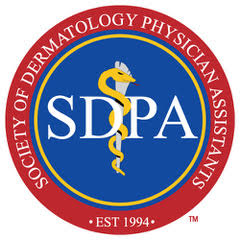Medical Expertise of Patrick Duffy, PA-C
Diagnosis and treatment of skin conditions, including acne, eczema, rosacea, psoriasis and skin cancer.
About Patrick Duffy, PA-C
Patrick Duffy was born and raised in Newark, Delaware. After high school, he attended Wilmington University and Miami Dade College. Mr. Duffy earned his bachelors degree in Behavioral Science and also his Physician Assistant degree.
Mr. Duffy joined Academic Alliance in Dermatology And Image International Institute in December Of 2007. He has been involved in the Dermatology field for the last ten years. His interests include both medical and cosmetic Dermatology. Mr. Duffy enjoys educating the community about sun safety. He has participated in numerous events for children as well as adults.
Patient Education Resources
Does the food I eat affect my acne?
There is some evidence to suggest that diet can play a role in the development of acne. Studies have found that a diet high in sugar and processed foods can increase the risk of developing acne. Diets...
There is some evidence to suggest that diet can play a role in the development of acne. Studies have found that a diet high in sugar and processed foods can increase the risk of developing acne. Diets...
Eczema Medication Savings & Support Programs
Click on the product image below to access medication savings or patient support programs from the manufacturer. In some cases, a form must be submitted along with proof of having purchased the med...
Click on the product image below to access medication savings or patient support programs from the manufacturer. In some cases, a form must be submitted along with proof of having purchased the med...
How do biologics work to treat my eczema?
Biologics are a class of medications that can be used to treat eczema, a chronic skin condition characterized by inflammation and itching. Biologics work by targeting specific parts of the immune syst...
Biologics are a class of medications that can be used to treat eczema, a chronic skin condition characterized by inflammation and itching. Biologics work by targeting specific parts of the immune syst...
How long does it take for a tattoo to disappear after laser tattoo removed?
The length of time it takes to remove a tattoo depends on several factors, including the size, location, and color of the tattoo, as well as the individual's skin type and overall health.The most ...
The length of time it takes to remove a tattoo depends on several factors, including the size, location, and color of the tattoo, as well as the individual's skin type and overall health.The most ...
What is microneedling?
Microneedling is a cosmetic procedure that involves using a device with fine needles to create tiny punctures in the skin. The needles are typically between 0.5mm and 2.5mm in length, and are used to ...
Microneedling is a cosmetic procedure that involves using a device with fine needles to create tiny punctures in the skin. The needles are typically between 0.5mm and 2.5mm in length, and are used to ...
